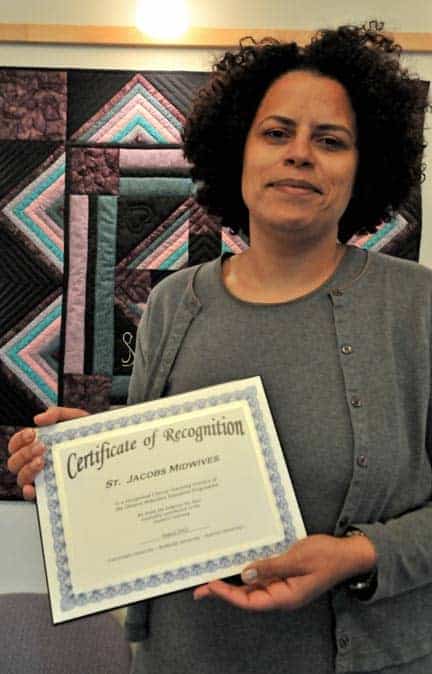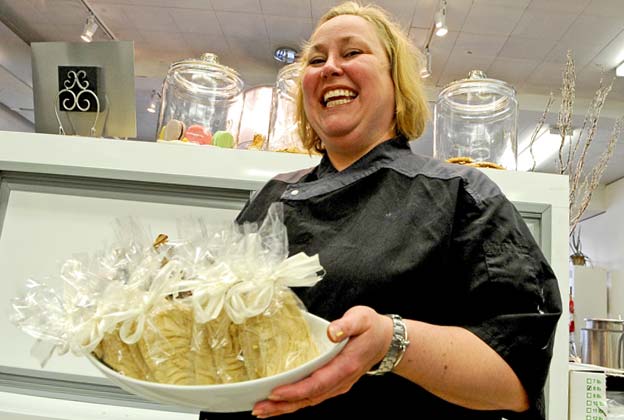Equal pay for equal work is the principle cited by the Association of Ontario Midwives, who have filed a lawsuit through the Human Rights Tribunal of Ontario against the provincial government.
Since midwives were introduced to the Ontario health care system 20 years ago, the provincial government has not implemented recommendations for pay equity. More than 500 registered midwives from across Ontario, including women from St. Jacobs Midwives, have signed on to the complaint, which alleges that the female-dominated midwifery profession is paid less than other, male-dominated medical disciplines.
At the announcement Wednesday in Toronto, Lisa Weston, president of the association, described the structure for midwives as discriminatory towards women. The association cited recent pay equity reports suggesting midwives are currently paid as little as 52 per cent of what their work is worth.
Nicole Roach, who has been providing care at St. Jacobs Midwives since 1998, gave a statement regarding injury to dignity for the lawsuit.
![Nicole Roach from St. Jacobs Midwives has joined the Association of Ontario Midwives lawsuit.[Will Sloan / The Observer]](https://www.observerxtra.com/content/images/wp-content/uploads/2013/11/post_midwives.jpg)
“Yes, I do feel this discrimination firsthand,” said Roach. “For 20 years, midwives have faced this gender inequity because it is an exclusively female-dominated profession. It’s work by women, for women, relating to a uniquely women’s experience.”
She added, “The compensation that midwives receive has been inadequate. I’m the only earner in my home. My husband stays home to take care of my children so we have consistent childcare, because I’m on call 24 hours a day, seven days a week. That’s a heavy burden to have to carry when you know you’re not being paid fairly.”
The midwives hope the lawsuit will lead to the human rights tribunal ordering the Ministry of Health and Long-Term Care to conduct a pay equity analysis. The Human Rights Code requires employers to take the necessary steps to award equal pay to women’s and men’s work.
“This is a human rights issue,” said Roach. “We expect government-set laws to protect people, and we expect the government will protect midwives. … They have not done that, and it’s not just recently: There is a 20-year history of this.”
For Roach, this week’s legal action is a last resort.
“This isn’t what we wanted to do. We came into midwifery because we wanted to take care of women, attend birth, do postpartum care – this is really what we want to do. We don’t want to have to take the government to the Human Rights Tribunal.”
She added, “It’s not just the day-to-day things we have to pay for: We should be putting some money away for our retirement. I can’t work 24 hours a day until I’m 65 or 70 – physically, I probably can’t do that.”
The midwives are represented by Mary Cornish of Cavalluzo Hayes Shilton McIntyre and Cornish LLP. There are currently more than 700 registered midwives in Ontario in 100 clinics.









